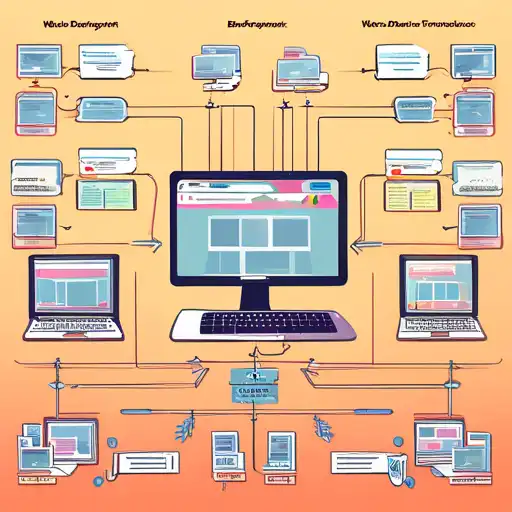Understanding Web Development Frameworks
In the ever-evolving world of web development, choosing the right framework can be a daunting task. With a plethora of options available, each promising to be the best, how do you decide which one is right for your project? This guide aims to demystify the process, helping you make an informed decision.
What Are Web Development Frameworks?
Web development frameworks are platforms designed to support the development of web applications, including web services, web resources, and web APIs. They provide a standard way to build and deploy web applications on the World Wide Web.
Types of Web Development Frameworks
There are primarily two types of web development frameworks: frontend (or client-side) and backend (or server-side). Frontend frameworks like React and Angular focus on the user interface and user experience, while backend frameworks such as Node.js and Django handle the server, database, and application logic.
Factors to Consider When Choosing a Framework
Selecting the right framework depends on several factors, including project requirements, team expertise, and long-term maintenance.
Project Requirements
Understanding the scope and requirements of your project is crucial. For instance, if you're building a single-page application (SPA), a frontend framework like Vue.js might be more suitable.
Team Expertise
The skill set of your development team plays a significant role in the choice of framework. Opting for a framework that your team is familiar with can significantly reduce development time and costs.
Community and Support
A strong community and good documentation can be lifesavers when you encounter issues. Frameworks like React and Angular boast large communities and extensive documentation.
Popular Web Development Frameworks in 2023
Here's a look at some of the most popular web development frameworks this year:
- React.js - A JavaScript library for building user interfaces, maintained by Facebook.
- Angular - A platform and framework for building single-page client applications using HTML and TypeScript.
- Vue.js - A progressive framework for building user interfaces, known for its simplicity and flexibility.
- Node.js - A JavaScript runtime built on Chrome's V8 JavaScript engine, ideal for building scalable network applications.
Conclusion
Choosing the right web development framework is a critical decision that can affect the success of your project. By considering factors such as project requirements, team expertise, and community support, you can select a framework that best suits your needs. Remember, the best framework is the one that aligns with your project goals and team capabilities.
